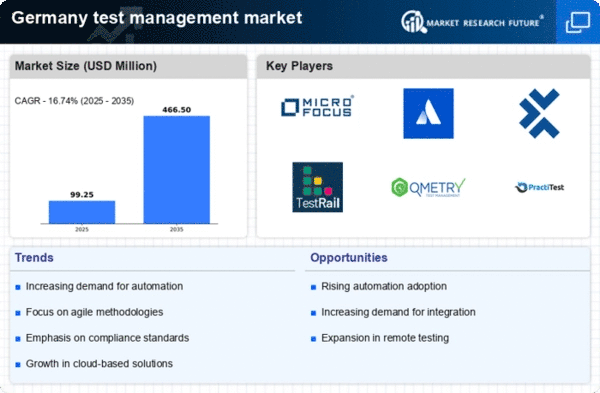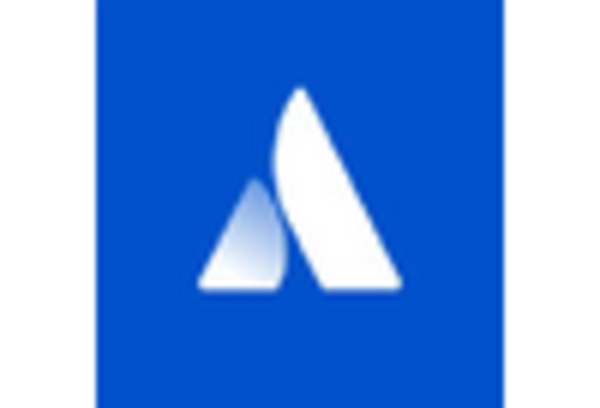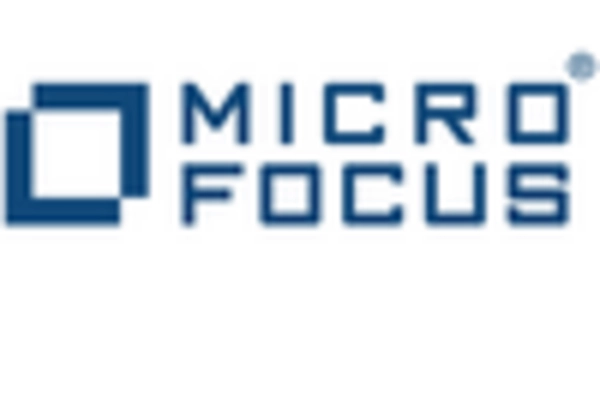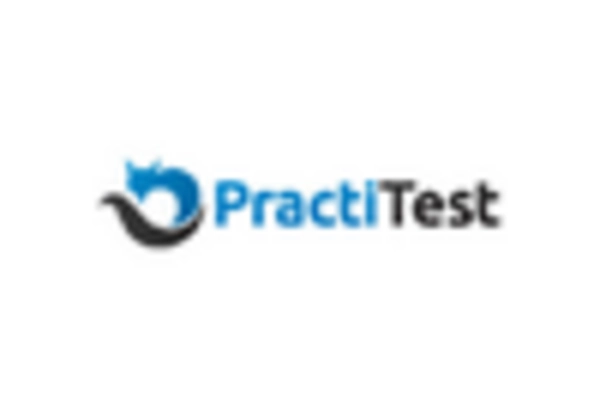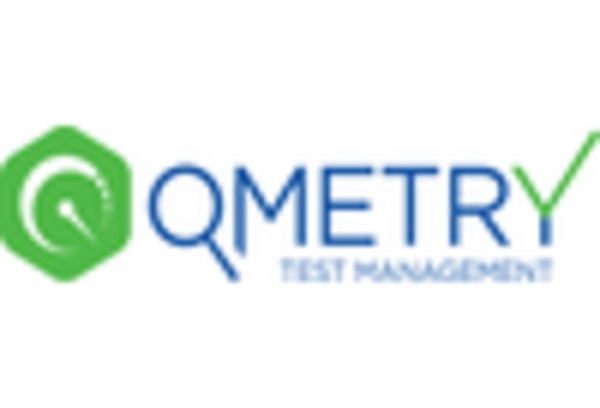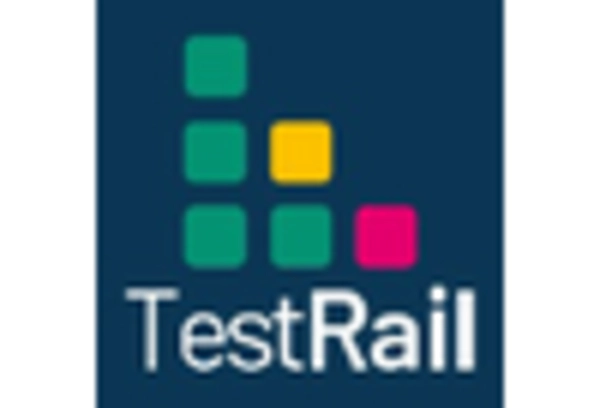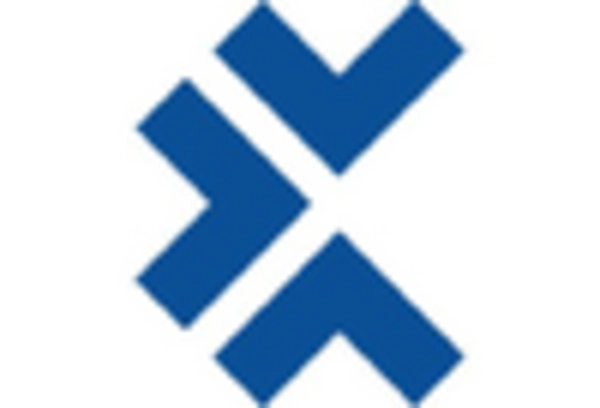Increased Regulatory Compliance
In Germany, the test management-software market is significantly influenced by stringent regulatory requirements across various industries, particularly in finance and healthcare. Organizations are compelled to ensure that their software products comply with local and international standards, which necessitates comprehensive testing processes. This regulatory landscape drives the demand for test management solutions that can provide detailed documentation and traceability of testing activities. As a result, companies are investing in software that not only facilitates testing but also aids in maintaining compliance with regulations such as GDPR and ISO standards. The market is expected to grow as businesses prioritize compliance-driven testing strategies, potentially increasing the market value by 15% over the next few years.
Expansion of Remote Work Practices
The shift towards remote work in Germany has created new challenges and opportunities for the test management-software market. As teams become more distributed, the need for collaborative testing tools that facilitate communication and coordination among remote members has intensified. Organizations are seeking solutions that enable real-time collaboration, centralized test case management, and remote access to testing environments. This trend is likely to drive innovation in test management software, with a focus on cloud-based solutions that support remote workflows. The market is expected to see a rise in demand for such tools, potentially increasing its value by 10% as companies adapt to the evolving work landscape.
Growing Focus on Quality Assurance
Quality assurance is a critical driver for the test management-software market in Germany, emphasizing its importance within the software development lifecycle. As organizations recognize the importance of delivering high-quality software products, the demand for effective testing solutions has surged. Companies are increasingly adopting test management tools that provide comprehensive reporting, analytics, and defect tracking capabilities. This focus on quality is reflected in the market's growth trajectory, with an anticipated CAGR of 12% over the next five years. The integration of advanced technologies, such as AI and machine learning, into test management solutions further enhances their effectiveness, allowing for more efficient testing processes and improved product quality.
Rising Demand for Agile Methodologies
The test management-software market in Germany is experiencing a notable shift towards agile methodologies. As organizations increasingly adopt agile frameworks, the need for efficient test management solutions becomes paramount. Agile practices emphasize rapid iterations and continuous feedback, which necessitate robust testing tools that can seamlessly integrate into the development lifecycle. This trend is reflected in the growing market size, which is projected to reach approximately €200 million by 2026. Companies are seeking software that not only supports agile testing but also enhances collaboration among cross-functional teams. The emphasis on speed and flexibility in software development is driving the demand for innovative test management solutions that can adapt to changing project requirements.
Emergence of Artificial Intelligence in Testing
The integration of artificial intelligence (AI) into the test management-software market is transforming how testing is conducted in Germany. AI-driven tools are capable of automating repetitive testing tasks, analyzing vast amounts of data, and predicting potential defects before they occur. This technological advancement not only enhances efficiency but also reduces the time and resources required for testing. As organizations strive for faster release cycles and improved software quality, the adoption of AI in testing is becoming increasingly prevalent. The market is projected to grow as companies invest in AI-powered test management solutions, with estimates suggesting a potential increase in market size by 20% over the next few years.


